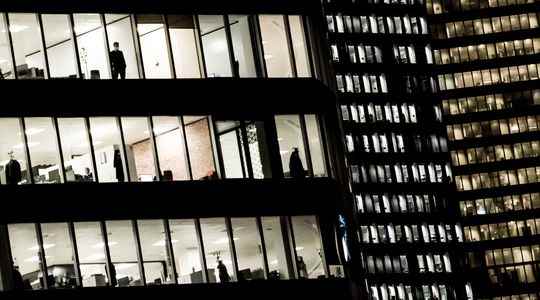Last April, the Luxembourg Energy Minister, Claude Turmes, spoke of the need for the European Union to set up “coordinated action” so that gas reserves of each member country are sufficient for the winter. On 26th July European energy ministers approved a plan ensuring energy security to deal with the disruption of Russian gas supplies, which concerns European states to varying degrees. Countries like Denmark, Austria or, since this Saturday, Latvia, have seen their deliveries completely cut off, while France or Germany have seen them drop drastically. The EU’s objective is quantified: it is a question of reducing, between August 2022 and March 2023, gas demand by 15% compared to the average consumption of the past five years.
This agreement, which only Hungary refused, seems necessary, when we know that the overall flows from Russia are currently 30% lower than the average for the period 2016-2021. However, it is not enough and several European states have already taken measures at national level to ensure that they can heat their population this winter.
- Haro on night lights
In this objective of energy sobriety, France agreed to a plan under which stores must turn off their illuminated signs as soon as they close, as well as “systematically reduce the light intensity” inside. Similarly, illuminated advertising is prohibited between 1 a.m. and 6 a.m., except in stations and airports. Most of the effort therefore relates to the energy consumed by the lights. Several municipalities have also adopted local measures to reduce the consumption dedicated to public lighting. Thus, the city of Montélimar now turns off the streetlights at night, while Avranches or Poitiers reduce their hourly range. France is also asking air-conditioned stores to keep their doors closed, or face a fine of 750 euros.
In Germanyfloodlights illuminating public monuments are now extinct, while the city of Hanover has already announced that its municipal buildings will only be heated from October 1 to March 31, and at a temperature not exceeding 20°C. Hanover is also asking athletes to grit their teeth, since it has cut off the hot water in its municipal swimming pools and sports halls. And to save gasoline, Germany plans to set up a public transport package at the single price of nine euros.
- The war on air conditioners
Paralyzed by the resignation of Mario Draghi, italy hasn’t taken much action yet, but the now ex-prime minister was actively working on a contingency plan. Among those considered were, as in Germany, the end of the night lighting of public buildings and, above all, the closing of all shops at 7 p.m., so that they do not have to use the lighting that darkness imposed. Only rule entered into force for the moment: the obligation to adjust the air conditioning between 25 to 27 degrees in summer, and the radiators between 19 to 21 degrees maximum next winter.
Very dependent on Russian gas, Greece plans to reduce its annual energy consumption by 10%. To do this, it launched “operation thermostat”, which consists in particular of installing protective screens in public buildings in order to limit the use of air conditioners. As part of this major upheaval in public facilities, the government has announced a €640 million program to renew windows and building cooling systems.
- A call for civic responsibility
In addition to government measures, most countries are calling for reasoned action of their population. In Ireland, the government urges people to reduce their energy consumption by lowering the thermostat to 20°C in the main rooms and leaving it between 15 and 18°C in the bedrooms. The electricity company Electric Ireland even urged residents to “boil the kettle only with the amount of water needed”. This intrusion into homes is not the prerogative of Ireland, even if it seems less extensive in other countries. In Greecethe population is called upon to turn off its computers after working hours, while the France invites its citizens to turn off routers and televisions when they are away.
As for spain, which does not depend on Russian gas, it was counting, until now, on “the intelligence of the Spaniards”, in the words of the Minister of the Environment. “We need to make things like turning off the light when we leave a room or using the thermostat properly become routine,” she says. But the country’s Prime Minister, Pedro Sanchez, nevertheless announced that the government would adopt Monday in the Council of Ministers “a set of urgent measures” to save energy, “in line with what other European countries are doing “. In the meantime, he dropped the tie, and called on his fellow citizens to do the same. It will be understood that all the measures taken at European and national level will be useless without the mobilization of all European nationals.
